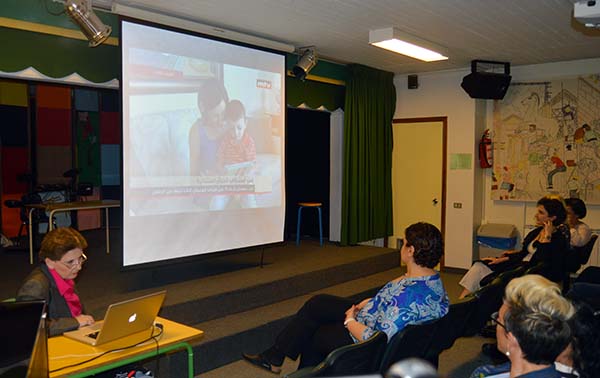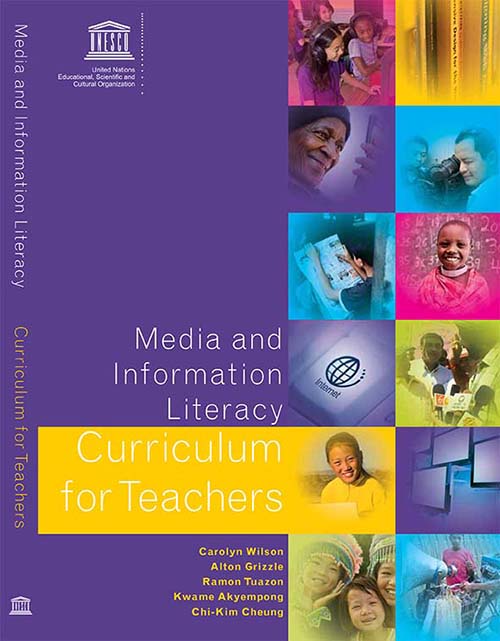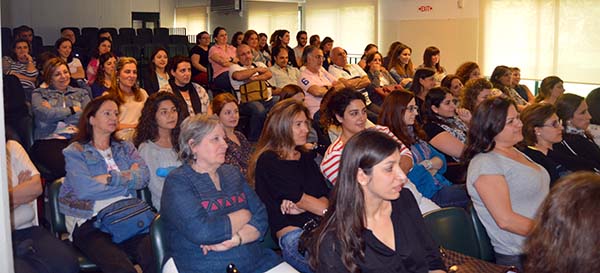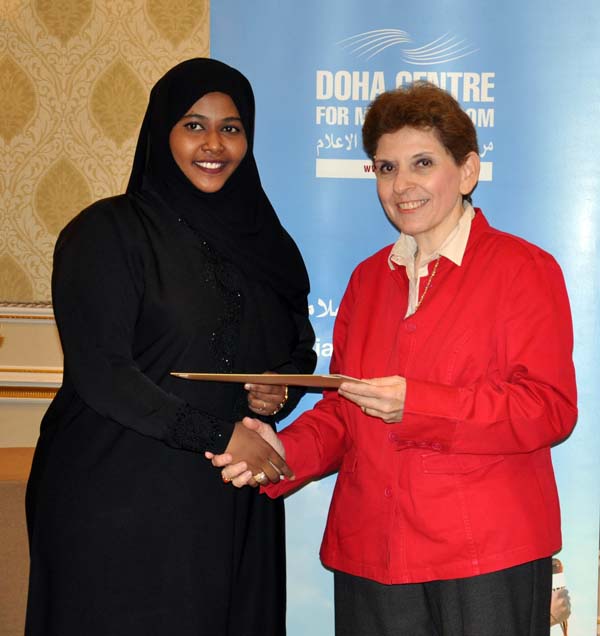Four speakers, including Media Unlimited director Magda Abu-Fadil, challenged participants at an “unconference” to help promote media literacy and mitigate damage from disinformation, social media abuse and various forms of manipulation via news and other outlets.

Magda Abu-Fadil on importance of media literacy at International Journalism Festival (courtesy Bartolomeo Rossi)
The “unconference” – different from a classical conference where speakers and sessions are defined – allowed participants to set the agenda and contribute solutions to problems.
Abu-Fadil’s challenge: How to find resources for media literacy courses. Who will pay and/or wants to pay for them?

IJF 2018 speaker
Her frame of reference was Lebanon in particular and the Middle East/North Africa (MENA) region in general with a need to provide such skills in multiple relevant languages.
The Global Editors Network (GEN) organized the “unconference” at the International Journalism Festival in Perugia, Italy in April 2018.
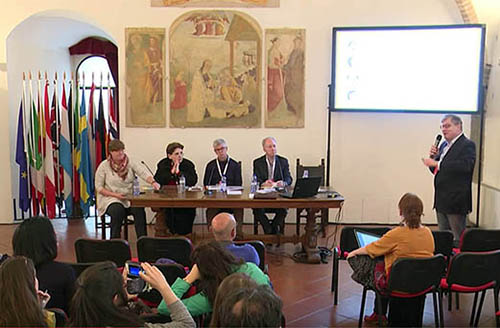
GEN CEO Bertrand Pecquerie guides media literacy “unconference” (courtesy IJF)
It grouped GEN CEO Bertrand Pecquerie as moderator, Dan Gillmor, a digital media literacy and entrepreneurship professor at Arizona State University’s Walter Cronkite School of Journalism and Mass Communication, George Brock, a journalist, consultant and visiting professor at London’s City University, Barbara Huppe, chief marketing officer at Hubii, a local news aggregator-cum-blockchain technology firm, and Abu-Fadil.
Pequerie facilitated a discussion with the audience asking participants to provide ideas, recommendations and various options for the four challenges.
The full “unconference” can be viewed here.

